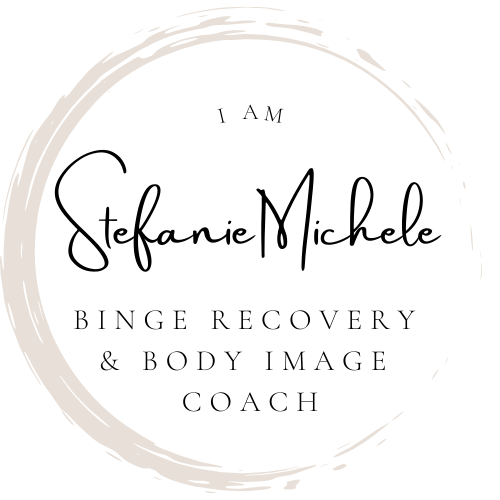Binge Eating is Not About Willpower
One of the most pervasive myths about binge eating is that it is an issue of willpower. If you are someone who binge eats, you may believe yourself to be weak, out of control, and gluttonous.
As a binge eating recovery health coach and a recovered binge eater myself, I can assure you that willpower is not part of the recovery equation. Attempts to heal your relationship with food by learning how to “better” restrict it (or by condemning yourself for faulty character) is more likely to fuel binge patterns and keep you stuck in the very cycle you are trying to escape.
The root cause of binge eating is restriction. Restriction can assume various forms, including physical restriction (the active avoidance of food, including types of food, amounts of food, and/or windows of time you allow yourself to consume food); mental restriction (the “shoulds” of food resulting in eating the food but feeling guilty about it and planning to avoid it in the future); and emotional restriction (the use of food to numb, distract, suppress, or express feelings). In this article, we are referring to physical and mental restriction, as these are the most common causes of binge eating.
Restriction causes us to feel trapped and controlled, which ignites a response of rebellion. The rebellion may be physiological or psychological in nature, but is the body’s way of saying NO to restriction.
In order to heal binge eating, it is imperative to heal our relationship with food first. However, in a culture that teaches us so many rules about food and assigns morality to how it is consumed (for example, eating “bad” or “good” foods), it is almost impossible to create a relationship to food that feels free, easy, and enjoyable. The pursuit of eating perfectly implies that certain foods must be restricted in some way, and as previously discussed, invites the binge response.
Willpower, then, is usually the problem to overcome when addressing binge eating. Instead of asking ourselves to demonstrate willpower against food, we must ask ourselves to invite food back in without judgment. We must ask ourselves to be flexible, to eat food for pleasure and satisfaction as well as for its nutritional value. We must ask ourselves to loosen the reins we grasp so tightly for fear of losing control with food, so that we may prevent the rebellion that inevitably ensues as a result of it.
I work with women in group and 1:1 coaching programs to address this healing process and neutralize food so you can enjoy a more flexible approach to eating. Binge eating does not have to be your way of life.
A version of this article was published in the August edition of Natural Awakenings NNJ Magazine
